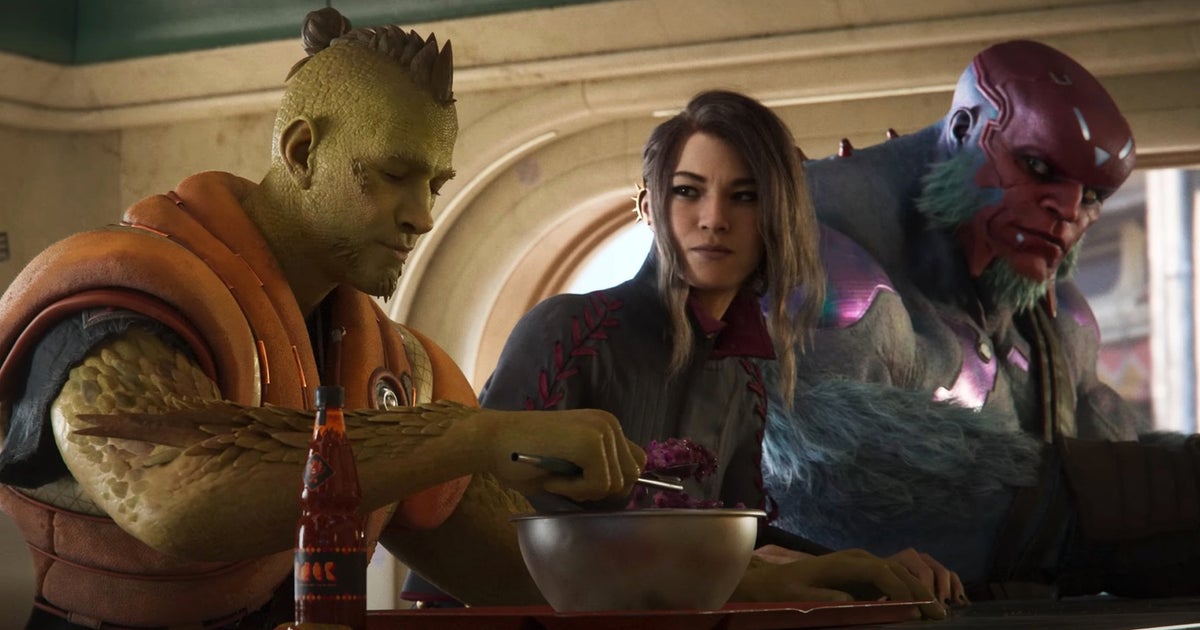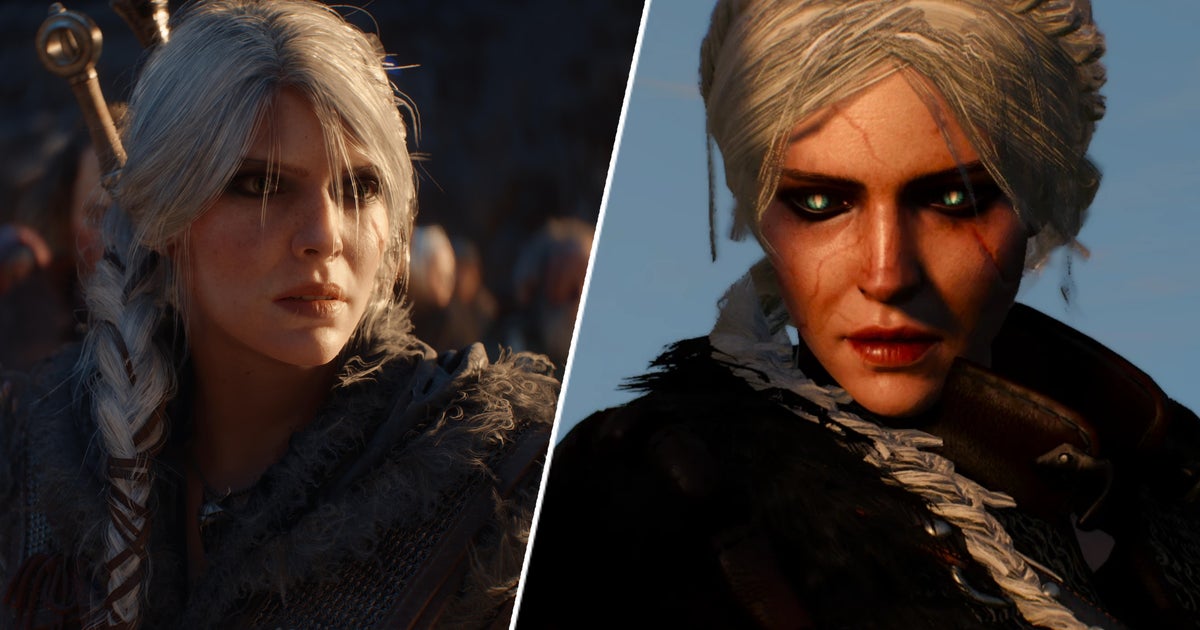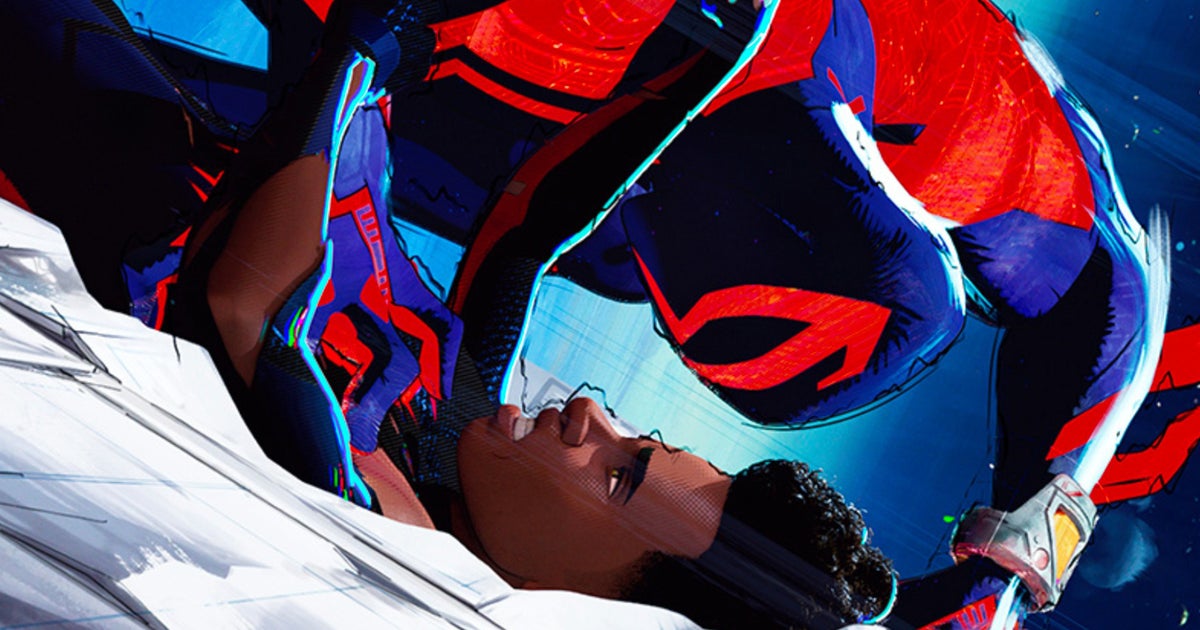Don’t Nod, the studio behind the original Life is Strange and its (stellar) numbered sequel, has an earnest quality to its writing that still gets me, almost 10 years after Max Caulfield first strode down the halls of Blackwell Academy. So even when Lost Records: Bloom & Rage, the next game from the studio set to launch next year, leans into some of the hokiest, most saccharine dialogue I’ve heard in a hot minute, that earnestness keeps me invested. I recently played about two hours of Lost Records, and though the build I got to mess around with was a little janky, especially as it oscillates between its ‘90s-era flashbacks and present-day framing device, I’m already even more intrigued than I was when I talked to the developers at Don’t Nod about the project earlier this year.
Lost Records focuses on a group of four friends who met as teenagers in the ‘90s and bonded over their love of rock music and protagonist Swann’s camera. But what’s clear is that, by the time they reunite over two decades later, something happened to them as they shot music videos in their childhood hometown. Lost Records shifts back and forth between Swann’s past and present, toying with the player’s uncertainty about why this group of girls haven’t spoken in years to create a constant sense of unease. Mundane conversations I had with Swann’s friend Autumn across a diner table in the present felt tense even when we were reminiscing about wonderful times we had together as teens.
The demo I played deliberately cut out segments that might have alleviated some of that tension, and the carefully curated mystique of the moments Don’t Nod put before me left me tantalized and eager to discover what supernatural twist is waiting in the cuts to black.
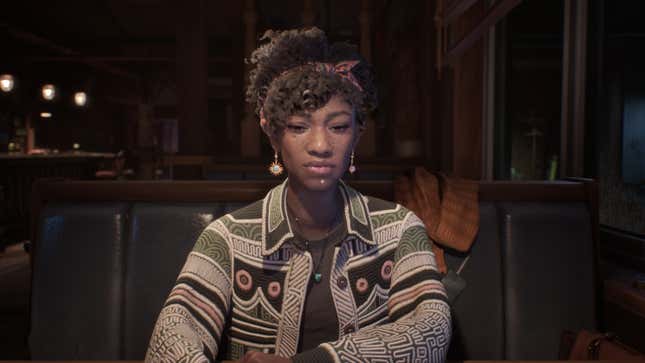
The parts of Swann’s story I was able to play, however, were intriguing in their own way, touching on parts of my own ‘90s nostalgia that I think I’ve started forgetting about as I’ve gotten older and more preoccupied with the present. The demo starts with her looking through her childhood room trying to find a movie she’s rented from the local movie shop but has misplaced somewhere in another case. As I examined all the doodads scattered across her distinctly ‘90s room adorned in period-appropriate homages to properties like Trolls and Stephen King novels, it was like I could feel the plastic of the VHS cases in my hands after having not thought about those things for decades.
Between throwing stuff out over the course of my childhood and moving across the country in adulthood, I’ve shed a lot of physical items and memories of the things that were once pivotal to my life. Not every piece of ‘90s media evokes those buried recollections for me, but walking through Swann’s room was the first moment when Lost Records tapped into my nostalgia. But I didn’t revel in it. It wasn’t an upbeat dopamine hit of a reference to some fondly remembered thing. It was more of a somber feeling, a recognition that time has passed and things have changed.
So many of the tactile experiences I had as a child have been replaced by scrolling and convenience. I imagine the juxtaposition of how Swann interacts with the technology of her adolescence and the more modern world of the present-day segments is meant to create a contrast between the two distinct moments in her life, but it also reminds me of how impermanent and disposable almost everything we interact with is. I’m thinking of the box of VHS tapes that sat in my family’s storage building for decades as we replaced them with DVDs and Blu-rays, which were then subsequently replaced by streaming services that will delist a movie without warning. I don’t even feel wistful, I just feel dread.
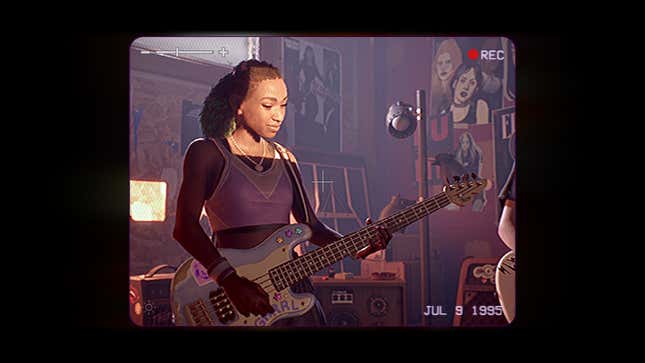
Lost Records is all about capturing these moments through technology that Swann couldn’t have conceived of being obsolete and likely forgotten years down the line. Beyond walking, talking, and examining items, I spent most of my time in Swann’s shoes recording shots of her room and her friend’s band practice on her camcorder. Her most precious adolescent memories are of her using the handheld camera to shoot 4:3 music videos for the friends she was dying to impress. Lost Records’ dialogue perfectly captures an awkward teen’s best efforts to fit in, to the point where I couldn’t help but empathize with her as I winced at the unabashed, unironic earnestness of how she speaks to her would-be friends.
While her anxiety may persist into adulthood, the raw, unpolished way she and her friends shoot a music video in the woods outside their hometown is but a distant memory. I don’t know yet if the shaky, awkward shots I took with Swann’s camera still persist in the game’s present day, but watching the end result of our time together and seeing how many clips were clearly born of me still getting used to which buttons did what in the game’s photo mode felt appropriate. Swann was still learning how to be a director at that age, just as I was still learning how to work the game’s controls. So yeah, the final result is not a professional, perfectly framed music video, but it’s the best I could do in the moment.
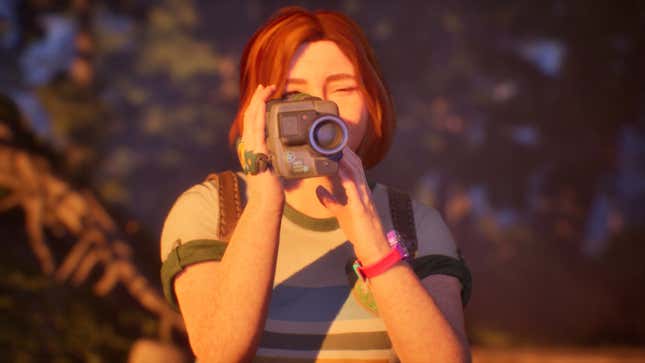
I expected Lost Records to play on ‘90s nostalgia, as Don’t Nod had told me it was a chance for the team to reflect on their own teenage years as adults. But I don’t think I was prepared for how it would play on my own anxieties about how the world is, well, losing records of its past. The tactile ways we once held footage, photos, letters are dying out. Technology has improved our lives, but it’s also made us flippant about how easily something historically or personally significant can be discarded with the touch of a button. Where once you’d have to tear and burn a photo to destroy it, now you just have to delete it from your photo app or hard drive. I’m only in my 30s, thus I’m not quite as distanced from my adolescence as Swann and her friends are in Lost Records, but so many videos and photos of those years have already been wiped as social media accounts are deleted and old photo albums have been lost in the shuffles between homes. Maybe that’s just what happens to nostalgia as the world grows more dystopian. It stops being a rose-colored lens to view the good ol’ days and becomes a reminder that history can feel impossible to preserve.
Lost Records: Bloom & Rage is coming to PC, PlayStation 5, and Xbox Series X/S in 2025.


